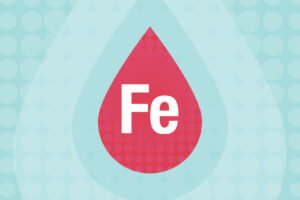Joint inflammation can not only cause pain and limit your level of activity, but it also can be a symptom of arthritis. While there isn’t a food or supplement that’s been scientifically proven to decrease joint inflammation, there are substances that have provided some relief for those with chronic joint pain.
What are the symptoms of joint inflammation?
You may have a joint condition if you are experiencing joint pain, swelling, stiffness, or warmth or redness near the joint.
What are the most common causes of joint inflammation?
There are many reasons why you may experience joint pain and inflammation. Chronic inflammation may be caused by:
- Osteoarthritis: The most common type of arthritis, osteoarthritis can develop in middle age or due to an injury or obesity. It occurs when the cushion between bones (cartilage) breaks down.
- Rheumatoid arthritis (RA): RA develops when your immune system doesn’t work properly and attacks the lining of the joints. This condition typically affects the hands, ankles, or knees.
- Gout: Gout develops when too much uric acid crystallizes and deposits in the joints. It causes sudden and severe joint pain that typically starts in the big toe. Other areas can be affected, including the ankle, knee, and foot.
What foods help reduce inflammation?
There is no solid, clear-cut evidence that eating certain foods will reduce joint inflammation for everyone. However, some people have found relief from a diet containing these foods:
- Fruits that are high in vitamin C, like oranges, grapefruit, and cantaloupe
- Grapes
- Olive oil (which also is good for maintaining cardiovascular health)
- Broccoli
- Okra
- Garlic
- Ginger
- Walnuts
- Most berries
- Foods rich in omega-3 fatty acids, like salmon, sardines, and trout
Can supplements help?
Supplements may provide relief for some people, but not everyone. Always talk with your doctor before starting any supplement, since they can interact with medications. Here are a few that may help you:
- Glucosamine and chondroitin: There are conflicting data about glucosamine and chondroitin, which are probably the most popular supplements aimed at reducing joint pain. It won’t hurt you to take it, but you should avoid these supplements if you have a shellfish allergy.
- Turmeric: Curcumin is the potent chemical in the spice turmeric and it has been shown to decrease inflammation. For best results, look for turmeric or curcumin with piperine. Piperine is derived from black pepper and helps your body absorb curcumin better.
- Capsules of turmeric with ginger and garlic
- Omega 3 fatty acid capsules
- Flaxseed capsules
What foods should people with joint inflammation avoid?
Some data indicates that the following foods can increase inflammation:
- Processed or fried foods
- Foods and drinks that are high in sugar, like soda or candy
- Dairy, particularly if you’re lactose intolerant
- Foods containing gluten, particularly if you have a gluten sensitivity
- Alcohol, especially if you have gout
You may have heard that nightshade vegetables, such as tomatoes, potatoes, and eggplant, increase inflammation. However, there is no solid research to back up that claim.
It’s important to note that smoking can cause RA to flare up and can decrease the potency of RA medication.
What else can I do to reduce inflammation?
There are several other steps you can take to help reduce joint pain. One of the most effective ways to reduce joint pain and inflammation—especially in the knees and hips—is to lose weight. This decreases the amount of pressure on your joints. For those who are able, exercise can help decrease pain and strengthen muscles. Managing any stress, anxiety, or depression that you’re feeling also can help. Yoga, tai chi, meditation, and practicing mindfulness can be effective.
What can happen if joint inflammation is untreated?
While it’s tempting to just take ibuprofen or ice a joint that’s inflamed, prolonged joint pain should be discussed with your doctor. The consequences of not getting proper treatment vary depending on the type of arthritis. If RA is left untreated, the immune system will continue to attack the joints, even if you can’t feel it. This can lead to joint damage or total joint destruction, which will require joint replacement surgery to repair.
In the case of osteoarthritis, taking ibuprofen often is not recommended for those with kidney disease or cardiovascular issues. Left untreated, the disease may continue to progress and may require more aggressive treatment, such as surgery, in the future.
How can I get help?
Contact your primary care doctor if you have chronic joint pain. It’s important not to delay care for these conditions.
If you’ve already been diagnosed with RA, don’t stop taking your medication. Talk to your doctor about refilling your prescription and discuss any precautions that you should take.
In all cases, consult with a doctor before altering your diet or taking supplements. What works for some may not work for you.
Mutahir Abidi, MD, is a board-certified rheumatologist and medical director of the Arthritis and Rheumatology Center at CentraState Medical Center. He can be reached by calling 866-CENTRA7.





